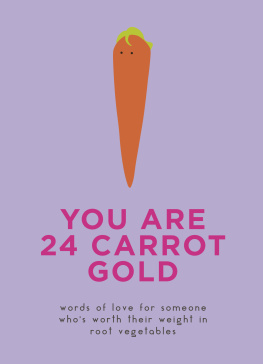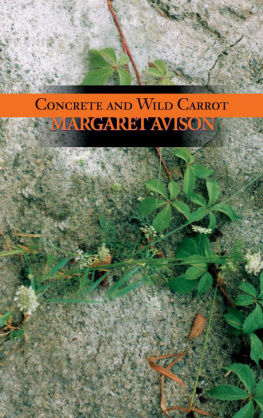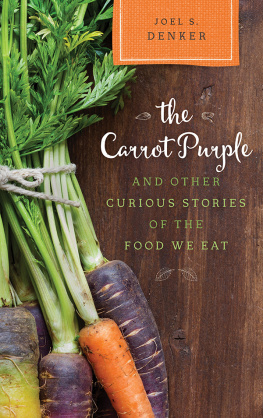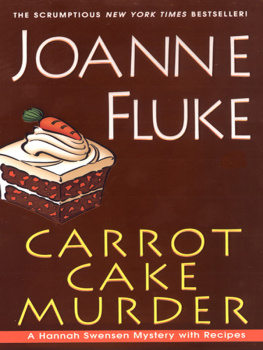Rowman & Littlefield Studies in Food and Gastronomy
General Editor: Ken Albala, Professor of History, University of the Pacific () Food studies is a vibrant and thriving field encompassing not only cooking and eating habits but also issues such as health, sustainability, food safety, and animal rights. Scholars in disciplines as diverse as history, anthropology, sociology, literature, and the arts focus on food. The mission of Rowman & Littlefield Studies in Food and Gastronomy is to publish the best in food scholarship, harnessing the energy, ideas, and creativity of a wide array of food writers today. This broad line of food-related titles will range from food history, interdisciplinary food studies monographs, general interest series, and popular trade titles to textbooks for students and budding chefs, scholarly cookbooks, and reference works.
Appetites and Aspirations in Vietnam: Food and Drink in the Long Nineteenth Century , by Erica J. Peters Three World Cuisines: Italian, Mexican, Chinese , by Ken Albala
Food and Social Media: You Are What You Tweet , by Signe Rousseau
Food and the Novel in Nineteenth-Century America , by Mark McWilliams Man Bites Dog: Hot Dog Culture in America , by Bruce Kraig and Patty Carroll New Orleans: A Food Biography , by Elizabeth M. Williams (Big City Food Biographies series) A Year in Food and Beer: Recipes and Beer Pairings for Every Season , by Emily Baime and Darin Michaels Breakfast: A History , by Heather Arndt Anderson (The Meals series)
Celebraciones Mexicanas: History, Traditions, and Recipes , by Andrea Lawson Gray and Adriana Almazn Lahl Food History Almanac: Over 1,300 Years of World Culinary History, Culture, and Social Influence , by Janet Clarkson The Food Section: Newspaper Women and the Culinary Community , by Kimberly Wilmot Voss Small Batch: Pickles, Cheese, Chocolate, Spirits, and the Return of Artisanal Foods , by Suzanne Cope Nazi Hunger Politics: A History of Food in the Third Reich , by Gesine Gerhard The Carrot Purple and Other Curious Stories of the Food We Eat , by Joel S. Denker Also by Joel Denker
The World on a Plate: A Tour through the History of Americas Ethnic Cuisine Capital Flavors: Exploring Washingtons Ethnic Restaurants
Unions and Universities: The Rise of the New Labor Leader
No Particular Place to Go: The Making of a Free High School (with Steve Bhaerman)
the
Carrot Purple
and other Curious Stories of the Food We Eat


Joel S. Denker
Rowman & Littlefield
Lanham Boulder New York London
Published by Rowman & Littlefield
A wholly owned subsidiary of The Rowman & Littlefield Publishing Group, Inc.
4501 Forbes Boulevard, Suite 200, Lanham, Maryland 20706
www.rowman.com
Unit A, Whitacre Mews, 26-34 Stannary Street, London SE11 4AB
Copyright 2015 by Rowman & Littlefield All rights reserved . No part of this book may be reproduced in any form or by any electronic or mechanical means, including information storage and retrieval systems, without written permission from the publisher, except by a reviewer who may quote passages in a review.
British Library Cataloguing in Publication Information Available Library of Congress Cataloging-in-Publication Data Denker, Joel.
The carrot purple and other curious stories of the food we eat / Joel S. Denker.
pages cm. (Rowman & Littlefield studies in food and gastronomy) Includes bibliographical references and index.
ISBN 978-1-4422-4885-4 (cloth : alk. paper) ISBN 978-1-4422-4886-1 (electronic) 1. FoodAnecdotes. 2. Food cropsAnecdotes. 3. VegetablesAnecdotes. 4. FruitAnecdotes. 5. CookingAnecdotes. I. Title.
TX353.D4329 2015
641.3dc23 2015015016
 The paper used in this publication meets the minimum requirements of American National Standard for Information SciencesPermanence of Paper for Printed Library Materials, ANSI/NISO Z39.48-1992.
The paper used in this publication meets the minimum requirements of American National Standard for Information SciencesPermanence of Paper for Printed Library Materials, ANSI/NISO Z39.48-1992.
Printed in the United States of America
To Peggy, without whose belief in this work and dedication to the project, it would never have been.
Contents
Acknowledgments
First and foremost, this multiyear project would not have been accomplished without the unstinting support, encouragement, and tireless work of my wife, Peggy, on all phases of it. When I doubted at times whether it would ever be done, Peggy urged me to keep the faith.
I owe a good deal to my editors Ken Albala and Suzanne Staszak-Silva. Suzannes assistant, Kathryn Knigge, was also very helpful.
This book grew out of the food writing I did for more than two decades for the Washington newspaper, The InTowner . Peter Wolff, the papers editor and publisher, provided me with strong backing and encouragement throughout. He gave me a wide berth to develop my own voice, my own style of food journalism.
My good friend, Patrick McDonough, offered me invaluable assistance in carrying out the research.
My association with the Oxford Symposium on Food and Cookery, at which I first presented my early carrot discoveries, was invaluable. This annual gathering of culinary amateurs and professionals, of students, scholars, artists, writers, gardeners, and a host of other food enthusiasts, was a major influence. Reading its proceedings and attending its meetings convinced me that I was part of a larger community. Oxford is a model of serious writing about food in all its dimensions for the general reader. Its vast body of work is cultivated without being prissy or pedantic. Attending a meeting at St. Catherines College in the company of luminaries like Elisabeth Luard, Claudia Roden, Barbara K. Wheaton, Madhur Jaffrey, Sami Zubaida, Gillian Riley, Bruce Kraig, Raymond Sokolov, and Jill Norman, among many others, was inspirational. Oxford veterans Charles Perry and Ken Albala made me feel welcome and graciously shared their wealth of food knowledge with me.
There are many others to thank for their assistance. In my quest for a publisher, Sara Roahen, the late Steven Shaw, Andrew Smith, Matthew Goodman, John T. Edge, and Susan R. Friedland all offered advice, and Ken Albala brought me together with Rowman & Littlefield.
A wide range of experts offered me the benefits of their food learning. Philipp W. Simon, an authority on carrots, took time out for many conversations, and taught me that a seemingly ordinary vegetable could have a fascinating and intricate history. Larry Pierce, Carlos Quiros, David Gentilcore, Jim McCann, Susan Tax Freeman, Helen Saberi, and David Plotnikoff each lent a very helpful hand. Pat Hooper from the Artichoke Advisory Board schooled a novice about the history of her industry and helped me to locate indispensable materials. Hugo Tottino from Ocean Mist Farms, the artichoke grower, and Margaret DArrigo-Martin, a former executive at DArrigo Brothers, the purveyor of Andy Boy broccoli and other vegetables, provided useful information about the history of their businesses.
My visits to restaurants and cafs helped me to flesh out my stories. The late, beloved Fred Cooper and his wife Barbara accompanied Peggy and me on many of our early expeditions. Fred was always enthusiastic about any new ethnic food discovery. Charles S. Vizzini offered companionship and insights about Italian vegetables and the food lore of Sicily, the land of his forebears. Emebet (Amy) Tsiga taught me a great deal about coffee and the spices of Ethiopia, her birthplace. In recent years, I have leaned on Luis Marroquin, the proprietor of Washingtons Taqueria Distrito Federal, for help in understanding Mexican food, as well as Latin cooking in general.









 The paper used in this publication meets the minimum requirements of American National Standard for Information SciencesPermanence of Paper for Printed Library Materials, ANSI/NISO Z39.48-1992.
The paper used in this publication meets the minimum requirements of American National Standard for Information SciencesPermanence of Paper for Printed Library Materials, ANSI/NISO Z39.48-1992.